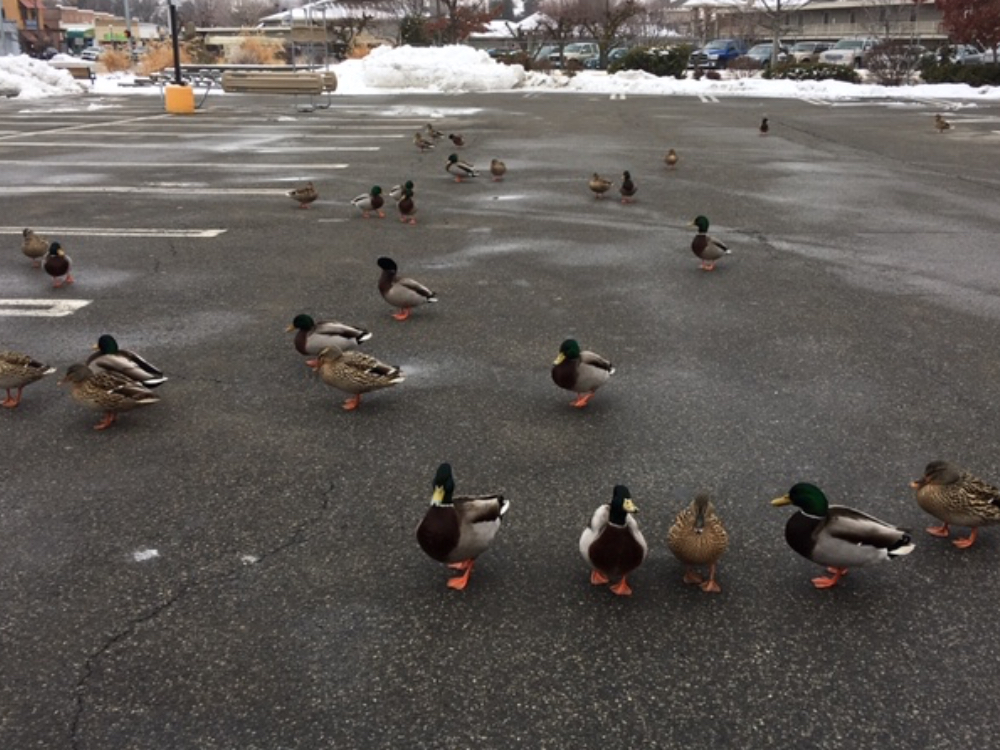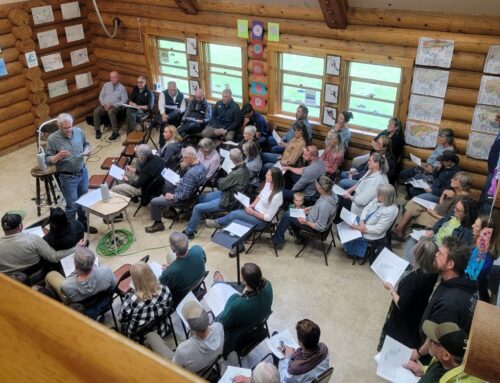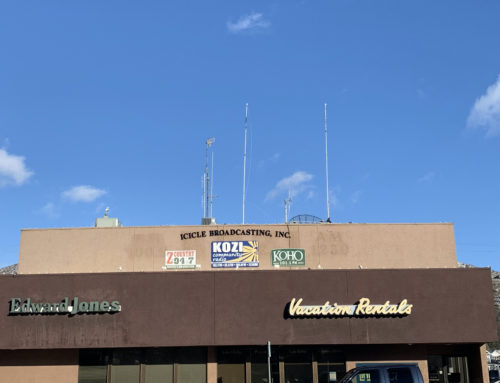They are really good at begging, but please don’t feed the ducks!
by Loni Rahm from compiled sources
I’m sure you’ve noticed the flock of ducks that have settled in for the winter at the Safeway parking lot. They rush at us quacking in high pitched desperation or squat defiantly in the middle of the parking spot you had your eye on.
Their “concrete jungle residency” choice confused me. Why – when there’s a perfectly good swath of potentially bug-filled grass at various points along the lake or the river – would ducks congregate in a parking lot?
Over the past few weeks, however, the reason has became quite apparent. It’s us. Feeding them. I’ve seen many people dropping bits and pieces of food, mostly bread, in a good-hearted attempt to keep the ducks nourished through the winter. But did you know that bread can be toxic to ducks and other water fowl?
No? Well I didn’t either.
According to Popular Science, bread contributes to a high-calorie, low-nutrient diet that can cause water fowl to develop a condition known as “angel wing” — an incurable wing deformity that usually renders birds flightless. Even worse would be the tendency to feed them moldy bread which can make ducks susceptible to lung and bacterial diseases, and contributes to the growth of algae in the waters they inhabit. In this case – it could impact Lake Chelan water quality.
Department of Fish and Wildlife officials indicate there are more than adequate natural food resources in and around the Lake Chelan Valley to sustain these long-term visitors. Hand feeding wild fowl may eventually contribute to long term dependency and eventual starvation. They indicate we can actually create an artificial feeding option that prevents them from learning to forage on their own. Dependent flocks become lazy and stop migrating.
The best advice from Audubon Society and other wildlife experts is to leave the ducks and geese alone. But human nature inherently has a desire to want to help. Since these fowl-ish friends have decided to winter over in Chelan, are there nourishing foods we can provide to these now year-around web-footed residents that won’t forever stunt their migration options?
Ducks (and geese) are meant to eat a variety of natural grains, aquatic plants and invertebrates, which are high in the types of vitamins and nutrients they require. They can thrive on a variety of lettuce and greens, including kale. Other safe options include commercial duck pellets, corn or peas (canned, frozen or fresh), seeds, oats and rice.
A rather exhaustive list of potentially toxic duck foods suggest that, aside from breads and obvious junk foods, you should completely avoid avocados, onions, citrus, nuts, chocolate, popcorn, and carbonated beverages.
A final tip from Fish and Wildlife: don’t ever attempt to catch or handle the ducks. In addition to potential transmittal of disease, the likelihood of injuring the duck is extremely high. And, according to bird experts – an injured duck is a dead duck.








